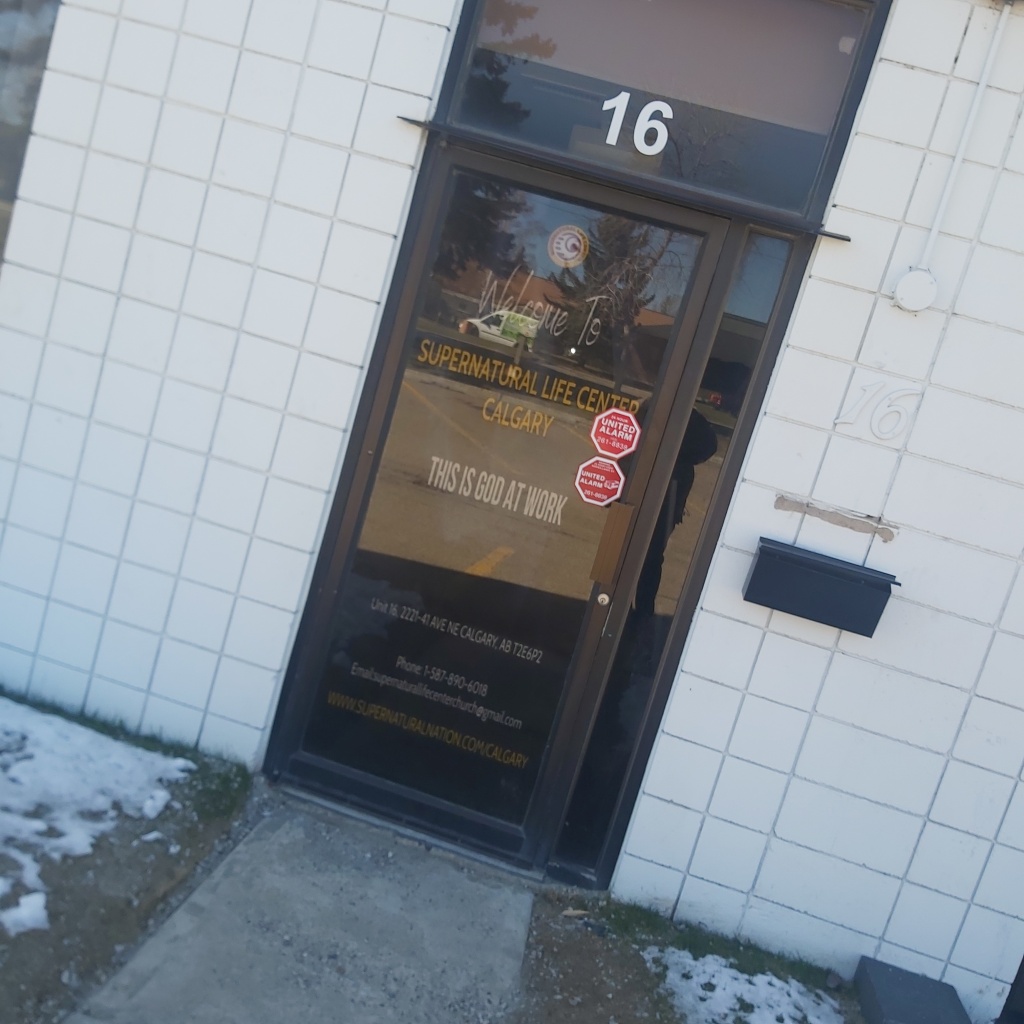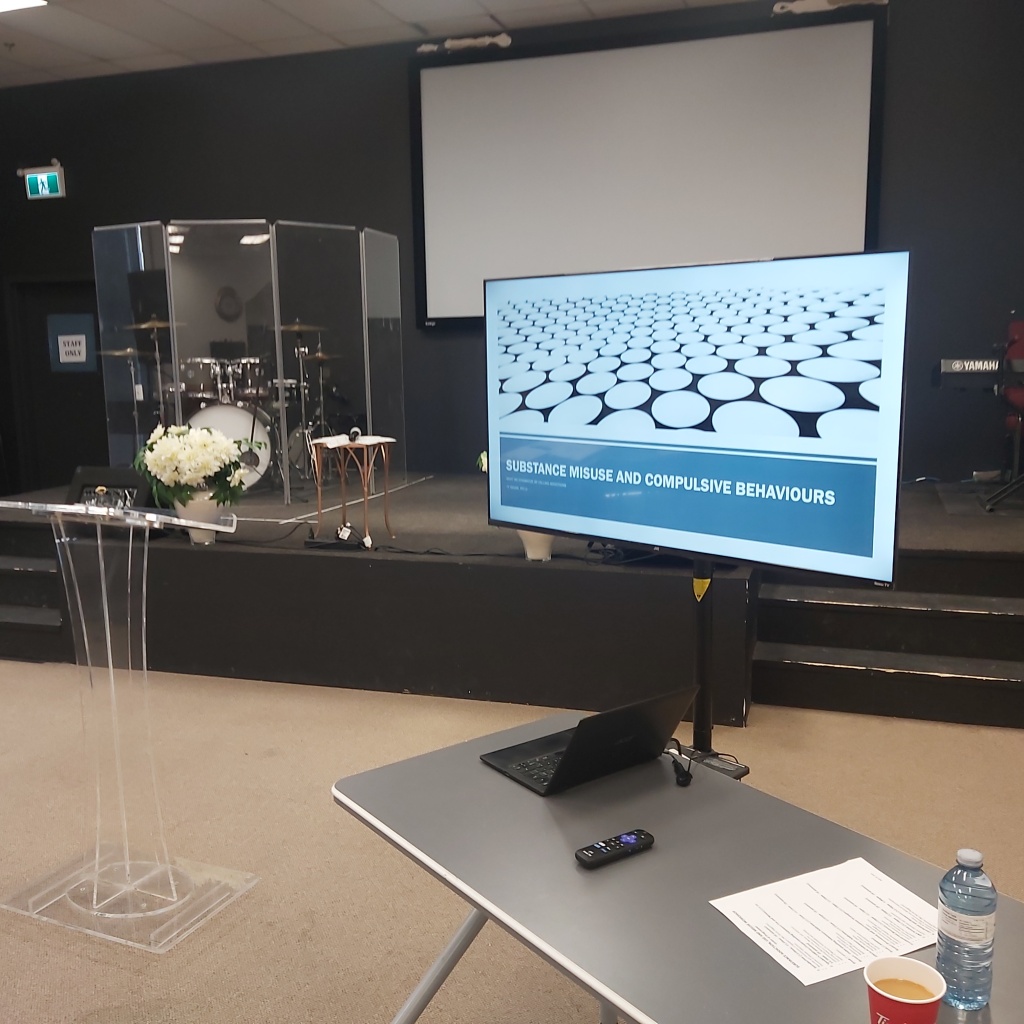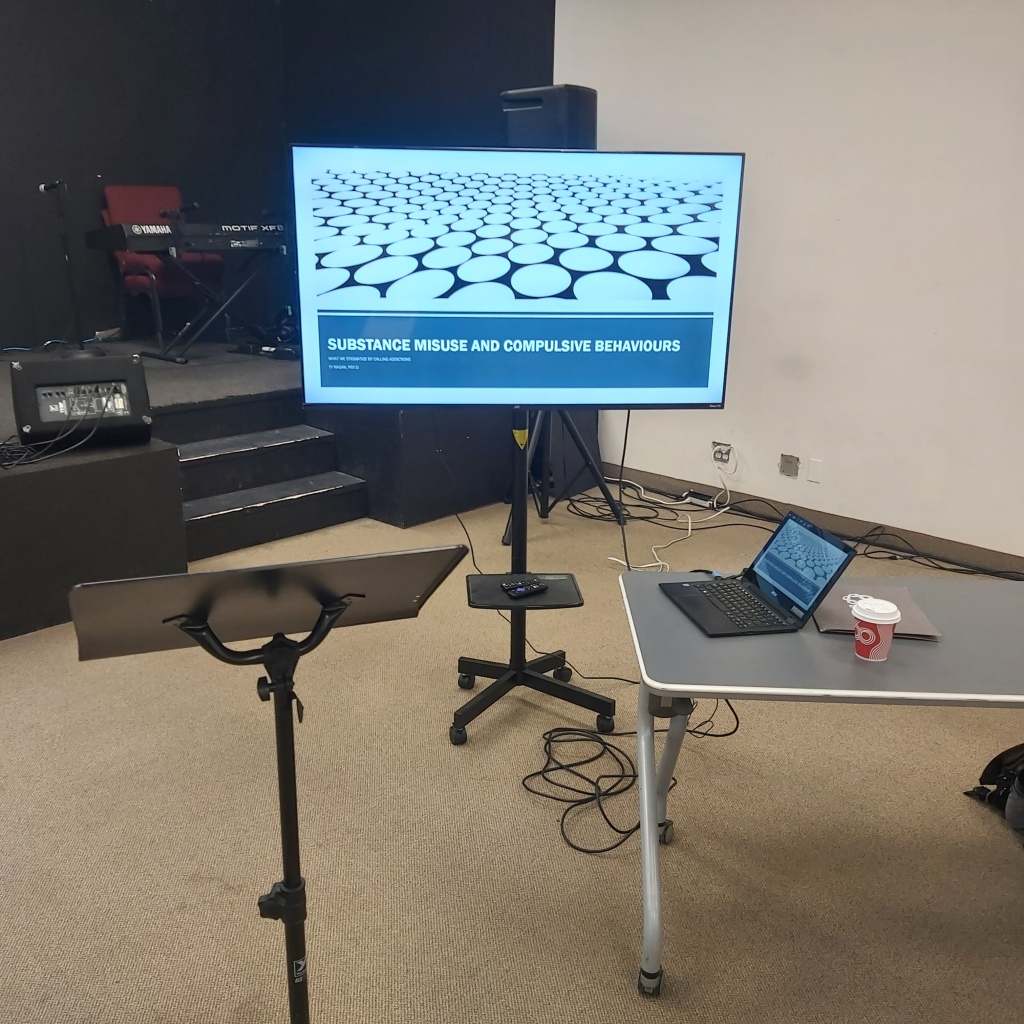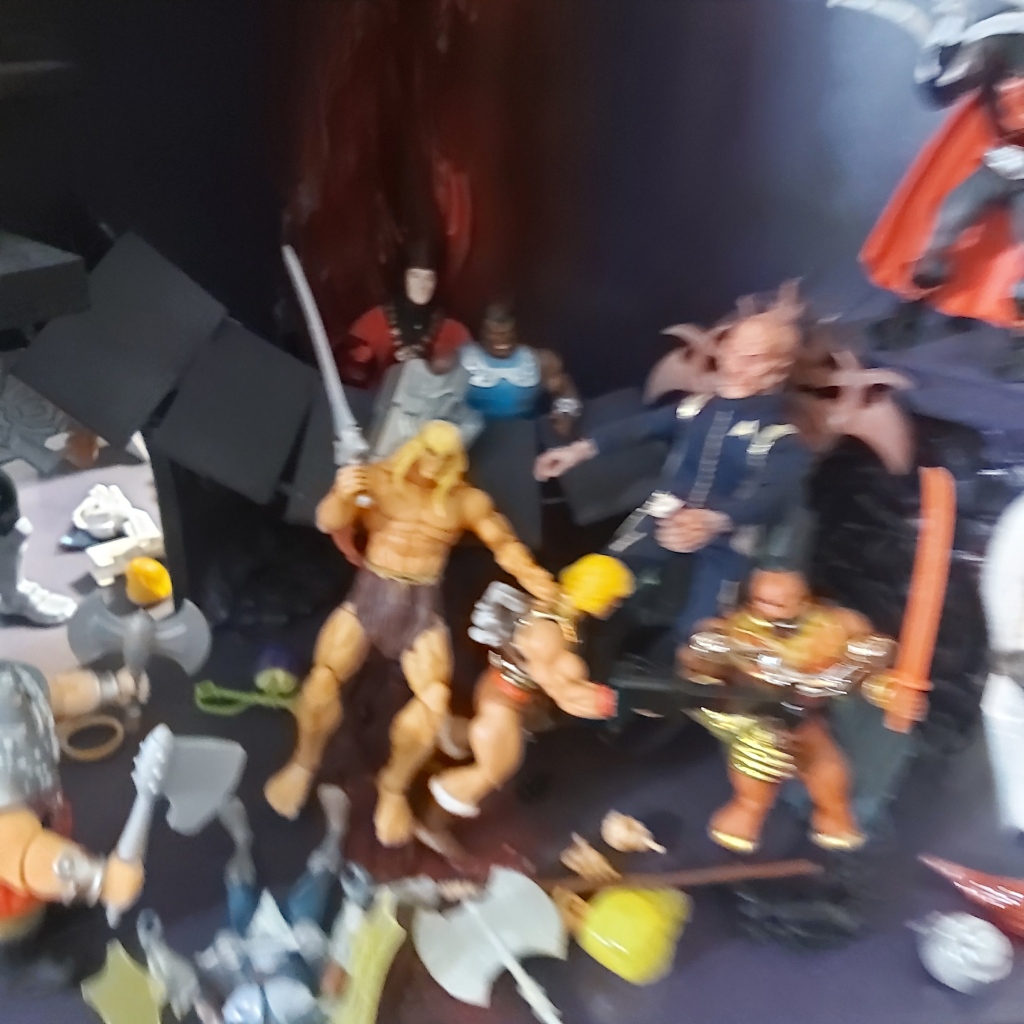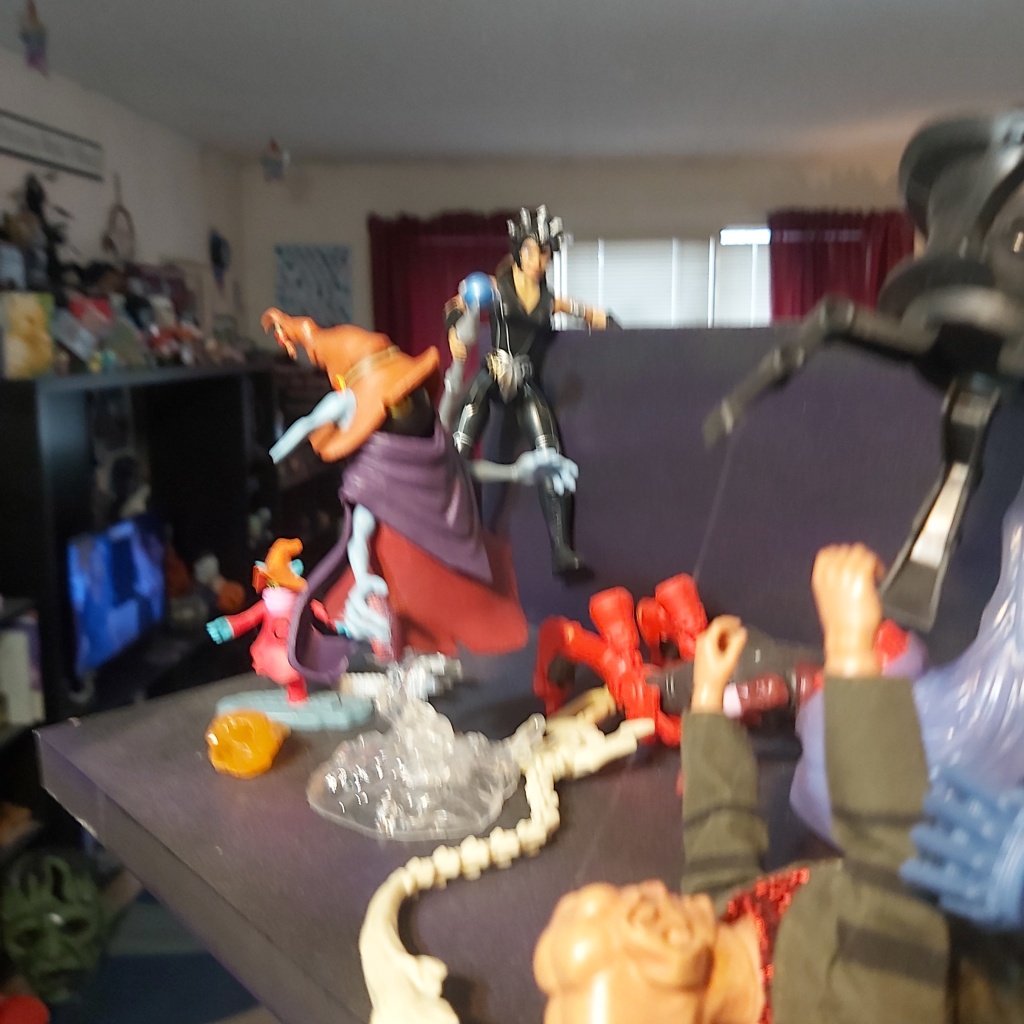The past two days was a blessing of sharing and learning, being in a cross-Canada conference on Disability Theology hosted by McMaster, as well as on-site at Ambrose, Northwest- Deep and Wide: Ecclesial Engagement with Disability Across Canada
I was priviliged to have my presentation accepted, for the site of my Alma Mater of my Master’s, Ambrose Univeristy (though when I was a student it was at Canadian Theological Seminary and its location was the old MRC builidng in downtown Calgary), though always feels a little bit good to be back in the learning environment. Also was the last place I had been a learner at that I had yet to teach at. Anyways enough side quests on this meander.



I closed off the four papers presented on Friday, which shared theology exploring what church could practically do with our buildings to engaging with to leaning into a renewed understanding of community extending into online community (which ties into moments from the grad weekend as a prof I was able to attend last weekend that saw exclusive online students being active participants in community but again a side quest). I know as I type this it is not my best, I also came to the realization this weekend if I was to use spoon theory, since about spring 2022 I have been running on about 1/2 to 1 spoon exclusively, and though I feel the amount growing as authentic rest begins to settle in, I know I do need, as one of the speakers, Rev. Morgan spoke of this weekend, saying yes to less so that there can be joy (a paraphrase I know), and Dr. Carl sharing on his friendship community on campus of intentional monastic style community was also a growth.
Okay time to end the rambles, here are some great resources, met a long-time online friend, and I encourage you to check out his site, and if you feel led engage in the upcoming book club: https://atthebottomofthewell.com/
As well, there is a new press out of Ontario, in the justice and theology work around disabilities (and yes not just books but a journal as well): https://www.madandcriptheologypress.ca/
What follows is just sharing the summary of my reflective research and key resources from Friday night (and yes can you tell the Shrekfluence?).
Everybody Poops:
The Dignity of Belonging
-A Summary-
Dr. Ty Ragan
Deep and Wide:
A Conference on Ecclesial Engagement with Disability across Canada
Ambrose University Site
March 10-11, 2024
Everybody Poops: The Dignity of Belonging
A Summary
This presentation grows out of the theology of lived experience practical and academic theologians and clergy, and research on the concepts of Imageo Dei (created image), diversity, intersections of socioeconomics, culture, race, gender and justice. It looks into how the church has created a process of segregation and degradation, but what the local church community can do to speak the truth and work on authentic reconciliation. An ability to move into authentic accessibility of facilities, inclusion (creating the space) and belonging for individuals of the diverse mosaic that is the created image.
What is the Imageo Dei to you?
In this part we reflect on where we begin the journey. What is your understanding of the image each of us is created in? Where are your apprehensions? Your spaces of unwelcome.
Visible or Invisible
This research looks at the concepts of mental health, neuro-diversity, and physical disabilities. Areas that some use person first language for. Concepts of trauma that can intersect, including medical.
Accessibility
Buildings are one of the most uncomfortable things to discuss. Churches can conflate their identity with historic builds and miss the point that the building itself can be the barrier. It can lead to exclusion, and even inhospitality. Yes, even if the building is to “code” it can not meet accessibility standards. One aspect of this, is bathrooms, for those who toilet not being designed for all mobility aids, gendered washrooms that create barriers for staff who support those who need help, and lack of change benches for those that do not toilet so they have to remain soiled, leave, or be changed on the floor hoping that no one walks in.
Inclusion
Inclusion is ensuring there is a welcoming space. Space being the key word, that regardless of how we are created there is space for us to exist in once we are able to enter the building. Yet it stops short as it does not mean we are known.
Interlude: Government Services
The challenge of proving worthiness is the story of government services. Each province is different, but a tale of Alberta, and having to show that you need, and then reprove when transitioning to adult services. The clawback due to other revenue sources, can one ever leave poverty? Do churches know the silent struggle of constant advocacy? The pain inflicted of caregivers being informed of the release of burden when the loved one passes and it not being a burden, but authentic grieving of loss.
Belonging
Practical Theologian, John Swinton’s work can be summed up as the greatest risk, for you are allowing connection, purpose, and belonging. You are allowing an openness of exchange that when they are not there you will grieve. You will feel. Belonging, and why we avoid it, is because we do not like to mourn and yet we can transform this.
“Each person with a disability, no matter how serious, severe, or even profound contributes something essential to and for the body, through the presence and activity of the Spirit; people with disabilities are therefore ministers empowered by the Spirit of God, each in their own specific way, rather than merely recipients of the ministries of non-disabled people” (Yong, 2011, p. 95).
References
Christensen, S. (2018). From Longing to Belonging: A Practical Guide to Including People with
Disabilities and Mental Health in Your Faith Community. Inclusion Innovations.
Dingman, M. (2022). Your Brain Explained. NB Publishing.
Eiesland, N. (1994). The Disabled God. Abingdon Press.
Hardwick, L. (2021). Disability and the Church: A Vision for Diversity and Inclusion. IVP
Praxis.
Kenny, A. (2022). My Body is not a Prayer Request: Disability Justice in the Church. Brazos
Press.
Lehman, I. (2014). All you Need to Know about Disability is on Star Trek. Mind Meld Media.
Melcher, S.; Parsons, M. and Yong, A. (2017). The Bible and Disability: A Commentary.
Baylor University Press.
Reynolds, T. (2008). Vulnerable Communion: A Theology of Disability and Hospitality. Brazos
Press.
Schneider, M. (2022). God Loves the Autistic Mind: A Prayer Guide for Those on the Spectrum
and Those Who Love Us. Pauline Books and Media.
Silberman, S. (2015). NeuroTribes: The Legacy of Autism and the Future of Neurodiversity.
Avery.
Swinton, J. (2016). Becoming Friends of Time: Disability, Timefullness, and Gentle Discipleship.
Baylor University Press.
Swinton, J. (2020). Finding Jesus in the Storm: The Spiritual Lives of Christians with Mental
Health Challenges. Baylor University Press.
Yong, A. (2011). The Bible, Disability and the Church: A New Vision of the People of God.
Wm.Eerdman’s Publishing Co.















